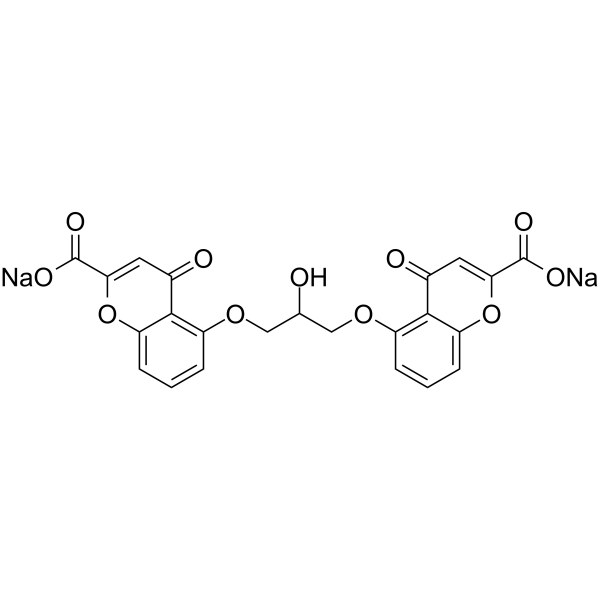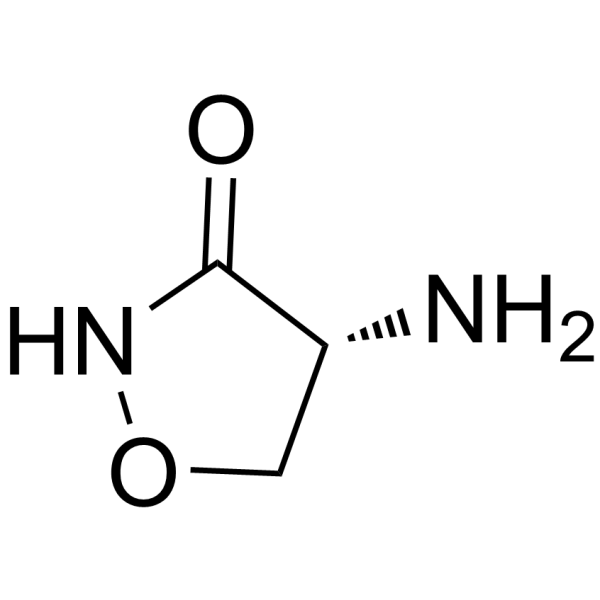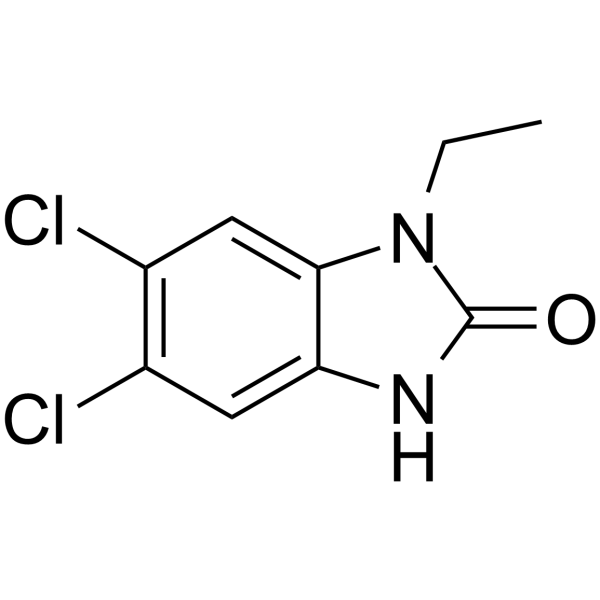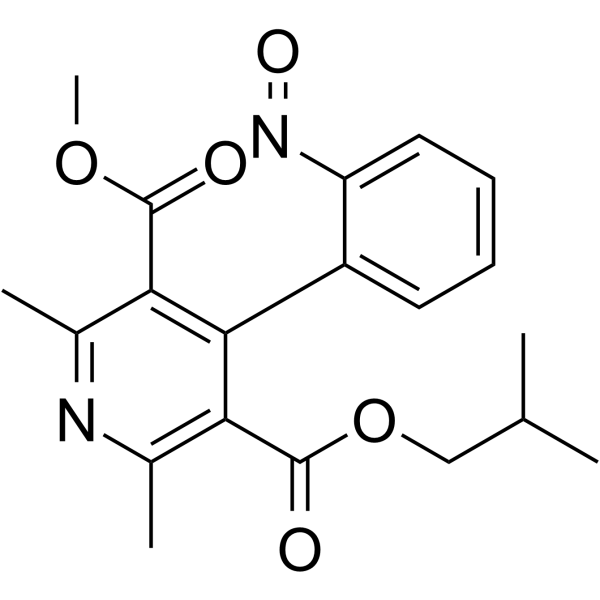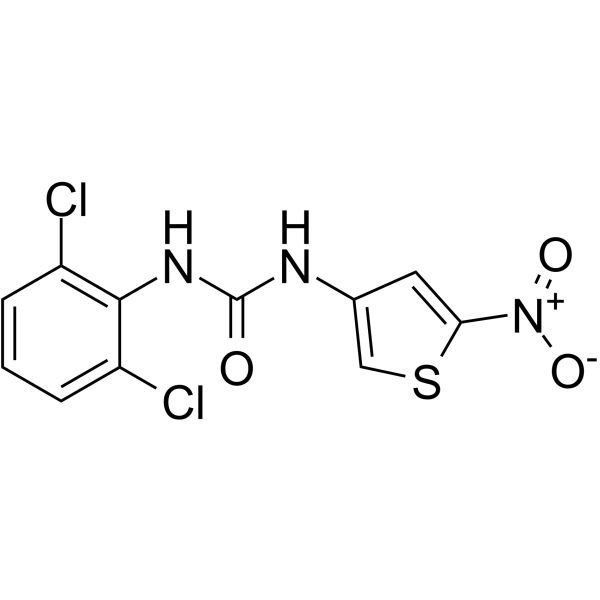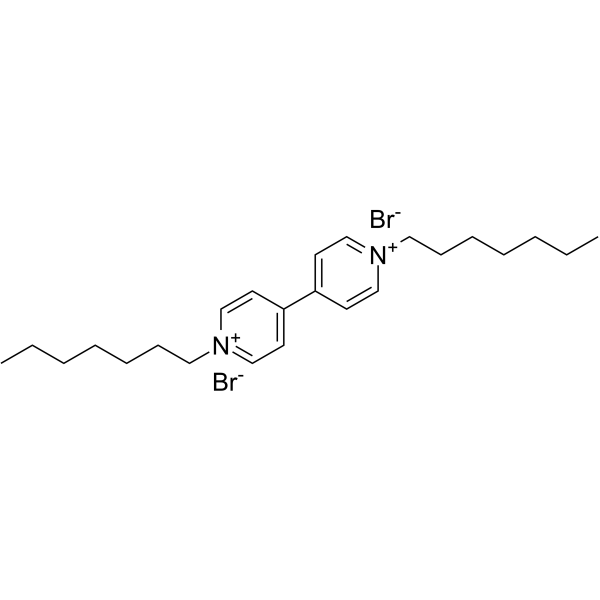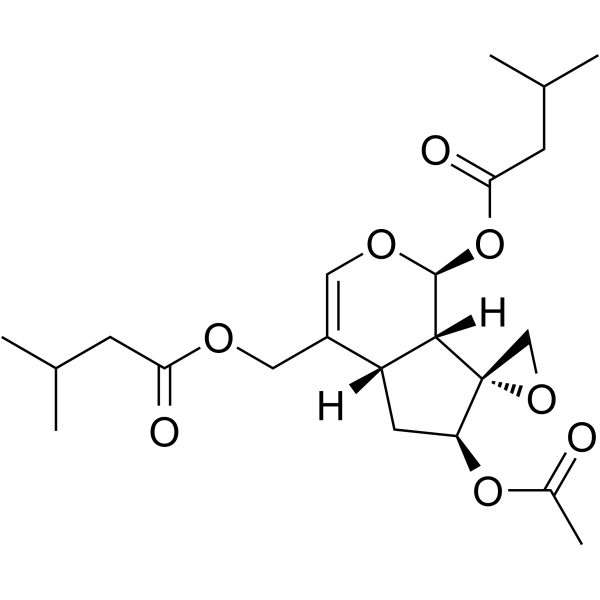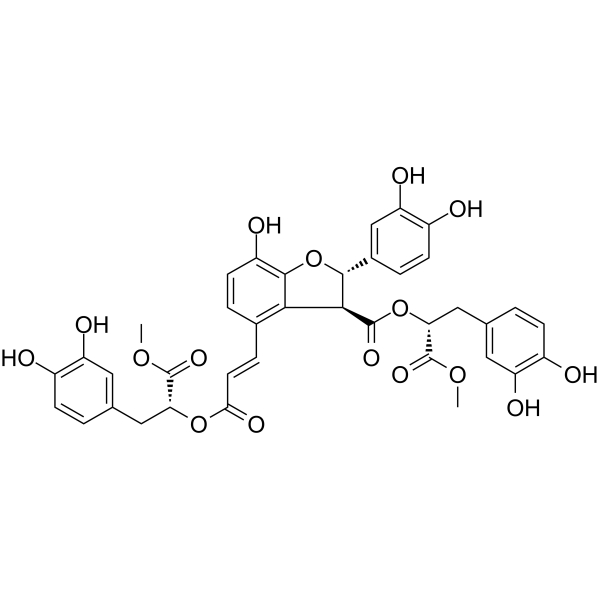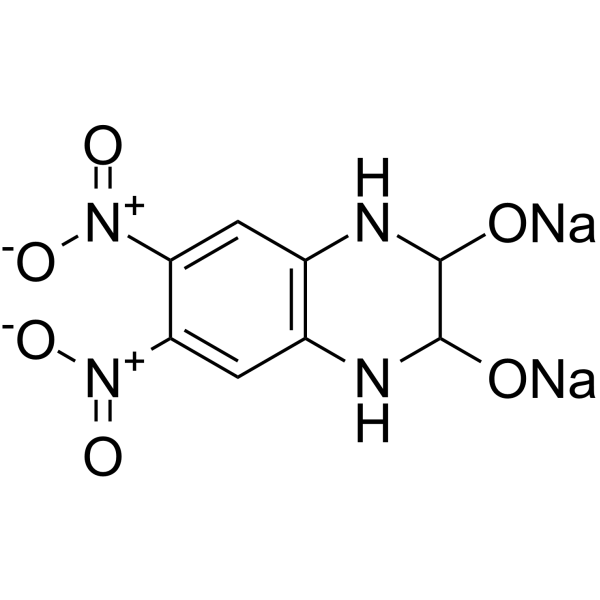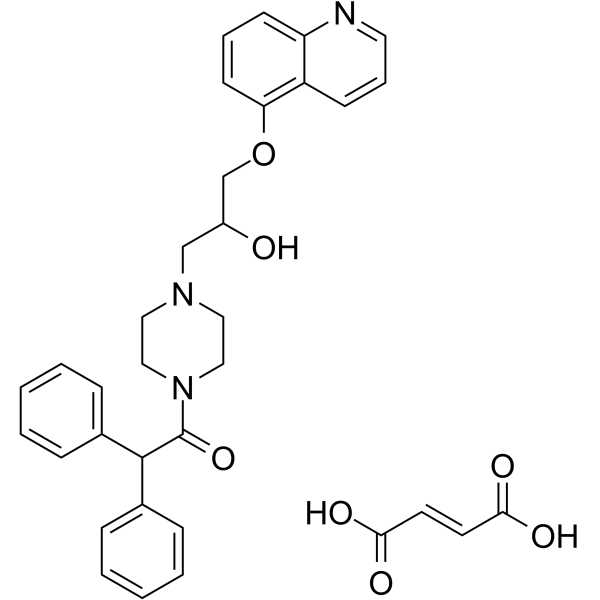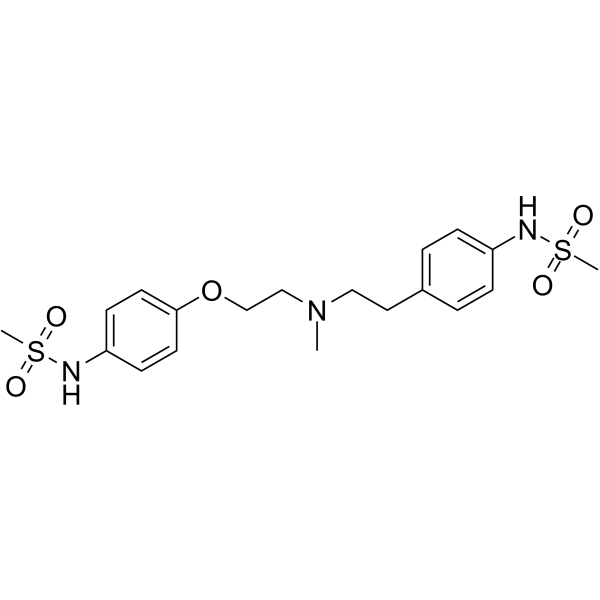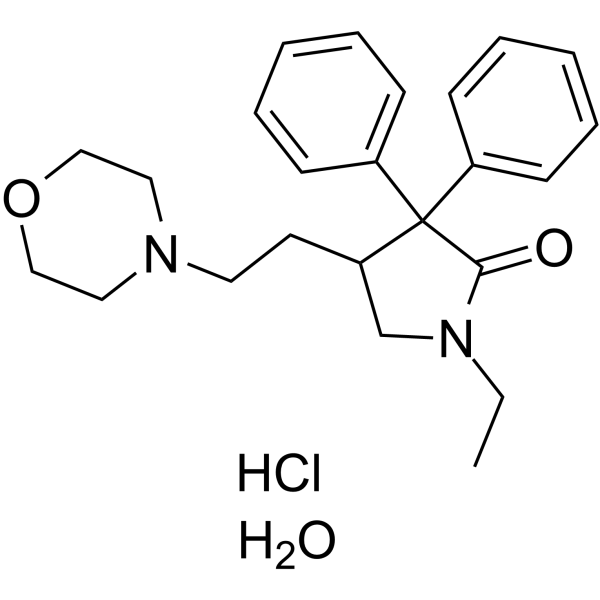|
BP15981
|
Coluracetam
|
|
|
|
|
Coluracetam(MKC-231) is a Choline Uptake Enhancer.
|
|
BP15982
|
(-)-Corlumine
|
|
|
|
|
Corlumine exhibits spasmolytic and GABA antagonist activity.
|
|
BP15983
|
Cromolyn sodium
|
|
|
|
|
Cromolyn sodium is a chromone complex that acts by inhibiting the release of chemical mediators from sensitized mast cells.
|
|
BP15984
|
CTP disodium dihydrate
|
|
|
|
|
CTP disodium dihydrate is an agonist of P2X4 purinergic receptor
|
|
BP15985
|
Cycloartane-3,24,25-triol
|
|
|
|
|
Cycloartane-3,24,25-triol has potential for development as an anti-cancer agent against prostate cancer. It reduces the viability of PC-3 and DU145 cell lines with IC50 values of 2.226 ± 0.28 μM and 1.67 ± 0.18 μM respectively.
|
|
BP15986
|
Cyclopiazonic acid
|
|
|
|
|
Cyclopiazonic acid (CPA) is a neurotoxic secondary metabolite (SM) made by A. flavus. Cyclopiazonic acid (CPA) is an endoplasmic reticulum calcium ATPase (Ca2+ATPase; SERCA)nanomolar inhibitor and a potent inducer of cell death in plants.
|
|
BP15987
|
D-Cycloserine
|
|
|
|
|
Cycloserine is a broad spectrum antibiotic used as a second line agent for treatment of drug resistant tuberculosis, always in combination with other antituberculosis agents.
|
|
BP15988
|
DCEBIO
|
|
|
|
|
DCEBIO stimulates the secretion of Cl- through the activation of the hIK1 K + channel and the activation of the apical Cl- conductance. DCEBIO is a derivative of 1-EBIO and a very strong activator of Cl- secretion by T84 colon cells.
|
|
BP15989
|
Dehydronitrosonisoldipine
|
|
|
|
|
Dehydronitrosonisoldipine is an inhibitor of sterile α and TIR motif-containing 1 and can be used in studies about neurodegenerative disorders. Dehydronitrosonisoldipine inhibits axon degenration and the Vincristine-activated cADPR production in neurons.
|
|
BP15990
|
DFP00173
|
|
|
|
|
DFP00173 is a potent and selective aquaporin 3 (AQP3) inhibitor. DFP00173 inhibits mouse and human AQP3 with IC50 of ~0.1-0.4 μM. Compared with the homologous AQP subtypes AQP7 and AQP9, DFP00173 is selective for AQP3.
|
|
BP15991
|
DHBP dibromide
|
|
|
|
|
DHBP dibromide is calcium release and a muscle relaxant inhibitor.
|
|
BP15992
|
Didrovaltrate
|
|
|
|
|
Didrovaltrate shows cytotoxic against human cancer cell lines. Didrovaltrate blocks I(Ca-L) in a concentration-dependent manner and probably inhibits I(Ca-L) in its inactive state, which may contribute to its cardiovascular effect.
|
|
BP15993
|
Dihydroisotanshinone I
|
|
|
|
|
Dihydroisotanshinone I has protective action against menadione-induced hepatotoxicity, attributed to its antioxidant properties including the free radical scavenging activity and inhibition of lipid peroxidation.
|
|
BP15994
|
Dihydroxyaflavinine
|
|
|
|
|
Dihydroxyaflavinine is a fungal toxin, it inhibits non-competitively GABAA receptor channel expressed in Xenopus oocytes.Dihydroxyaflavinine shows oral toxicity to the fall armyworm (Spodoptera frugiperda) and corn earworm (Heliothis zea).
|
|
BP15995
|
Dimethyl lithospermate B
|
|
|
|
|
Dimethyl lithospermate B is a selective Na+ channel agonist.
|
|
BP15996
|
DNQX disodium salt
|
|
|
|
|
DNQX Disodium is a water-soluble form of selective antagonist of non-NMDA receptor
|
|
BP15997
|
Dofequidar fumarate
|
|
|
|
|
Dofequidar fumarate(MS-209 fumarate), an orally active quinoline compound, has been reported to overcome MDR by inhibiting ABCB1/P-gp, ABCC1/MDR-associated protein 1.
|
|
BP15998
|
Dofetilide
|
|
|
|
|
Dofetilide is a sulfonamide class III antiarrhythmic agent and potassium channel blocker. Dofetilide selectively blocks cardiac ion channels of the rapid component of the delayed rectifier potassium current Ikr. This antiarrhythmic agent prolongs cardiac action potential duration and effective refractory period due to delayed repolarization without affecting conduction velocity. This results in a normal sinus rhythm. Dofetilide is used in the treatment of atrial fibrillation and flutter.
|
|
BP15999
|
Dopropidil
|
|
|
|
|
Dopropidil is a new anti-angina pectoris calcium regulator, which has intracellular calcium antagonist activity and anti-ischemic effects in various predicted animal models.
|
|
BP16000
|
Doxapram hydrochloride hydrate
|
|
|
|
|
Doxapram hydrochloride hydrate inhibits TASK-1, TASK-3, TASK-1/TASK-3 heterodimeric channel function with EC50 of 410 nM, 37 μM, 9 μM, respectively.
|
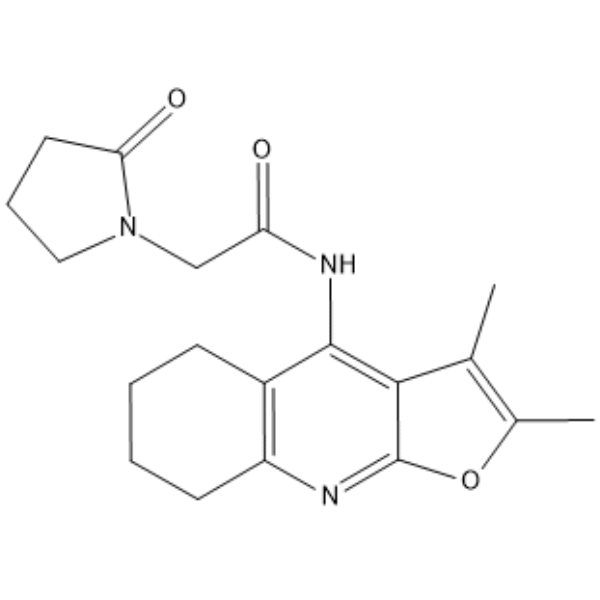
-Corlumine.gif)
